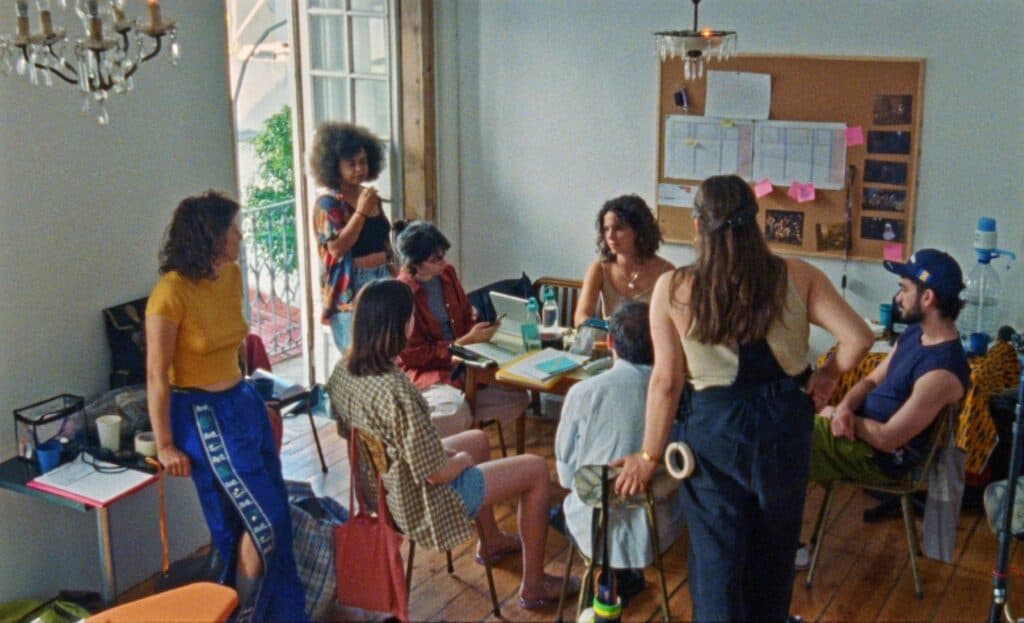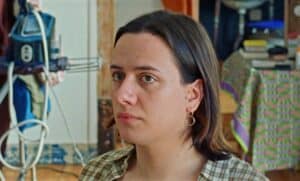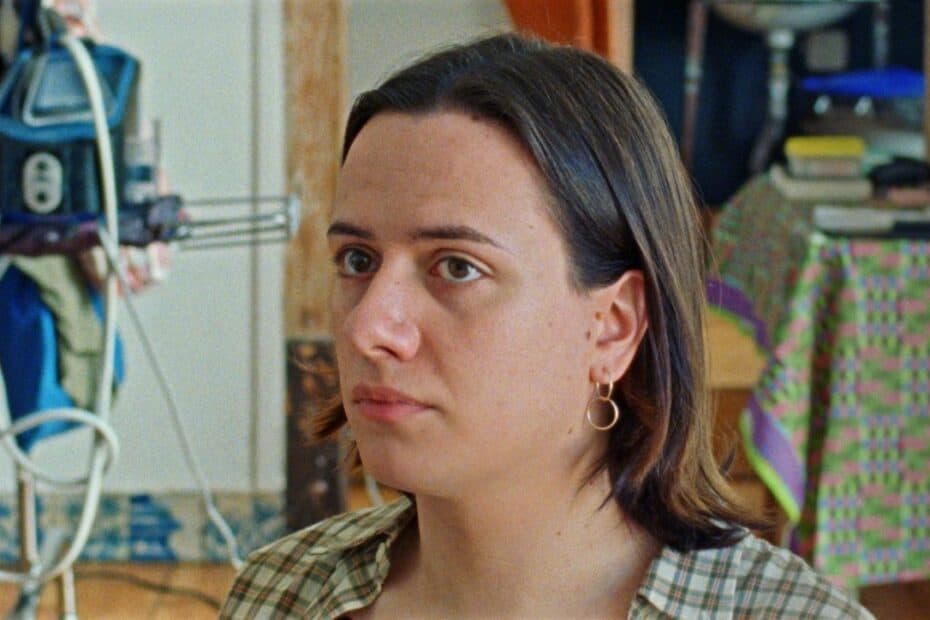Two Times João Liberada (Duas vezes João Liberada) is the first feature directed by Paola Tomás Marques, following several shorts. It is about the production of a biopic of sorts about the titular fictional character, a gender non-conforming shepherdess. When I interviewed the director, she stressed the critical distinction, “or that is what we would view them as today.” This assertion alone shows that we are dealing with a director who understands the hazards of imposing contemporary terms and viewpoints on historical material. During the shooting, the leading actress João (co-screenwriter June João) expresses her scepticism towards the project in the film’s narration. The director, Diogo (André Tecedeiro), appears to have a simplistic view of his film’s topic.
The director will be struck by a mysterious illness that might significantly hamper the project. There are a myriad of films about filmmaking, and the pivotal point is how the filmmakers walk down this well-trodden path. This is even more important with a film dealing with LGBTQ+ issues that, more often than not, become didactic, earnest, and, not least, without any sense of humour or self-reflection. Two Times João Liberada could not be further away from falling into those traps. The film is made on a budget that a Portuguese critic described: “It’s not a zero budget film; it is less than that”. A fact that the director confirmed.

The budget is also one reason for the film’s visual style, with a small team where the crew members had to perform multiple duties, but there was also a stylistic intention. The aim was to use the forced limitation in their favour, and the film succeeds splendidly. This is a film directed by someone who not only studied cinema in different ways but manages to deliver a work with a remarkable formal assurance where no references are semi-digested. On top of that, the sharp intellectual content is consistently delivered playfully and is often very funny. At night, João is haunted by the ghost of the titular character, who expresses disdain over the project.
Two Times João Liberada goes meta
The scene reminded me of Oliveira’s Benilde ou A Virgem Mãe (1975). Considering that I always think of Oliveira, that might not mean much, but the director confirmed that it was a film that profoundly affected her when she saw it years ago. There are several formal conceits, like playing with the colour grading in some scenes with Diogo’s version of events as seen during the film within the film. Still, Diogo is not reduced to a token villain, and he might have his own reasons for his behaviour. Paola Tomás Marques is not a filmmaker who uses her position for facile soapbox statements but rather for intelligent reflection.

It is slightly curious to read some critics who seem to be stuck on the obvious limitations of the project. The film is only 70 minutes long but manages to explore its subject in an enthralling and humorous way. That is something not merely to applaud but also to enjoy and relish in its ample rewards. Among them are the 16mm cinematography, transferred to digital, and the original music, which will hopefully be released shortly. Two Times João Liberada was presented in the Perspective section of the 2025 Berlinale, and it was one of the highlights of that section and the entire festival. I will follow the director’s future career with great interest.
Two Times João Liberada

Director: Paula Tomás Marques
Date Created: 2025-08-16 12:49
4
Pros
- Intelligent
- Funny
- Thought-provoking
Cons
- Nothing that can't be explained by the budget.
